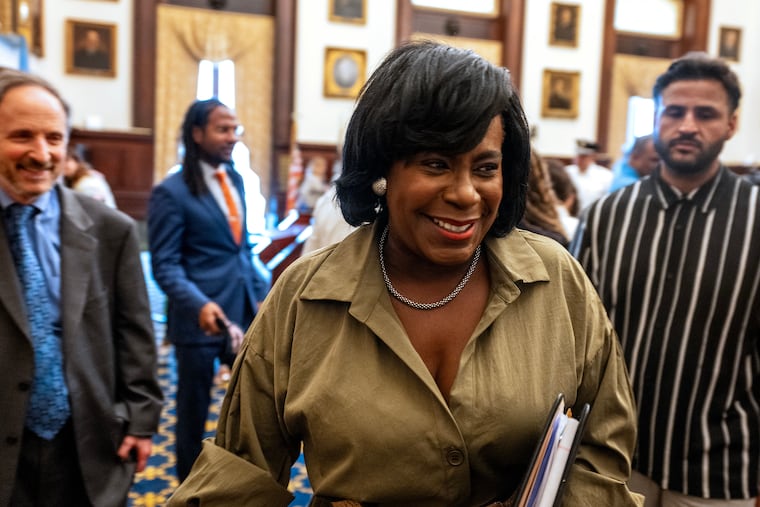Parker Ends Trash Strike with New Deal for DC 33, Successfully Navigating a Key Challenge
Mayor Cherelle L. Parker, alongside union leaders representing blue-collar municipal workers, successfully negotiated a new contract on Wednesday, thereby concluding an eight-day strike involving trash collectors and other city employees in Philadelphia. This agreement marks a significant milestone in labor relations in one of the nation’s largest urban centers, emphasizing both fiscal responsibility and the necessity for fair compensation for essential workers.
The newly established three-year contract incorporates annual salary increases of 3 percent and one-time bonuses of ,500. Notably, the terms closely align with Parker’s last pre-strike proposal, suggesting a strategic victory for her administration. The implications of this agreement are particularly relevant given the financial constraints facing Philadelphia, noted as the poorest major city in the United States.
The financial impact of the contract is significant, with estimates indicating a cost of approximately 5 million to the city’s budget over the next five years. This deal not only upholds the city’s budgetary integrity but also reflects Parker’s commitment to maintaining fiscal stability amidst broader economic uncertainties. Consequently, this achievement can be viewed as a win for Philadelphia taxpayers, as it enables the mayor to navigate challenging financial landscapes while addressing employee compensation needs.
Despite the apparent success of the negotiations from a fiscal standpoint, members of the American Federation of State, County and Municipal Employees District Council 33 expressed disappointment over the outcome. Union President Greg Boulware had advocated for annual pay increases of at least 5 percent and sought to make strides in reversing long-standing concessions made by his constituents, who typically earn an average salary of ,000.
While Boulware may not have achieved all his objectives this time, the strike sparked an important dialogue regarding the compensation of city employees, highlighting the essential contributions of the workforce. Future administrations will need to prioritize addressing these compensation issues to ensure workers feel valued and fairly compensated for their work.
Looking ahead, Parker faces ongoing labor challenges, with additional negotiations on the horizon pertaining to the city’s police, teachers, firefighters, and administrative personnel. Given the teacher workforce’s recent discussions around potential strikes, the repercussions of Parker’s current negotiations may have lasting effects on future labor relations within the city.
As Philadelphia residents return to regular trash collection on Monday, the ramifications of this latest contract negotiation remain to be fully realized. The enduring question is whether the outcomes justified the means employed during negotiations, and how this situation will influence public perception among workers and residents alike in the future.







